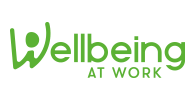Caroline PESCATORE – Sophrologist of the Wellbeing AT WORK network
Ten anti-stress tips to apply daily to avoid burn-out and stress, the disease of the 21st century.
Perfectionist, full of enthusiasm and ambitious with an enormous will to do well we constantly overload ourselves with work, having difficulty delegating we willingly accept additional hours of work.
Everything is fine, we don’t recognise our limits and we give it all. Despite our need for rest we do not stop and take on our private sphere, neglect our social contacts and our leisure time to be able to recover. Despite our continuous effort we no longer achieve the desired results, errors set in and with them our self-esteem begins to decline. Without noticing it we have entered the loop of stress, we no longer notice that we are stressed, deny the situation and persevere.
Our body sends us stronger and stronger messages: headaches, muscle tension, itching, insomnia accompanied by cognitive symptoms (such as memory problems, difficulties in making decisions, anxious thoughts, inability to concentrate…) and emotional symptoms (irritability, impatience, feeling tired, inability to relax, feeling isolated, sadness…). We change our eating habits to a greater or lesser extent, avoid our responsibilities, develop nervous habits (nail biting) or over-activity in certain areas, abuse alcohol, cigarettes or medication to relax, our reactions become overwhelming when faced with unexpected problems.
Burn-out is a physical and mental exhaustion at the end of a long period of stress.
Stress is a normal reaction of our organism to the solicitation of our environment to a factor that seems threatening or unmanageable. We are all exposed to stress, which is necessary to move us forward in life. Each of us needs a different level of stress to function properly, depending on our personal profile. It all depends on the duration, the amount of stress and our interpretation of the situation whether we manage it or not.
How to recognise our limits and keep our personal balance in order to avoid burn-out?
- To practice relaxation of the deep and dynamic static sophrology type in order to: externalize tensions, regulate metabolism, relax, recover, take a step back and create references of relaxation.
- Install moments of relaxation in the form of mini-relaxations of three to 10 minutes in order to maintain hormonal secretion at an acceptable level and to remain attentive to one’s needs and body,
- Install a relaxing breathing reflex in the face of stressful events in order to control the ancestral stress system,
- Do a regular self-check, set up times during the day when you control your level of tension: breathing, jaw tension, neck, hands… to reconnect to the present moment,
- Make an assessment of your lifestyle (Work, sleep, meals, rest, leisure, physical exercise)
- Identify the sources of stress: poor time management, relational, neglected needs, external/noise, temperature, our cognitive representation of things (thoughts, fears,…) and recognize the symptoms of stress
- Observe thoughts and behaviours, question habits and do things consciously. (make a priority list of things to do, note ruminations, habits),
- Do not compare yourself to others but seek your own balance, recognize your limits and have the courage to say stop,
- Do not make assumptions but ask clear and precise questions,
- Learn to distinguish between what can and cannot be changed and let go of situations where we have no influence.
Managing stress is above all a will, it is learning to listen to yourself and to develop an action plan to remain active in your life.
Caroline Pescatore, Sophrologist
We must also consider the environment in which we work and especially the working conditions. You can manage your stress well at an individual level, but if you are confronted every day with conflicts, poor communication between colleagues, a tense work climate, the symptoms will not go away. A polluting work environment has harmful consequences for the employee’s health.
Taking an interest in the detection of psychosocial risks in the workplace and taking the necessary measures to reduce or eliminate them is essential in order to prevent employees’ good health and guarantee quality of life at work.
Claudine Schmitt, Managing Partner


